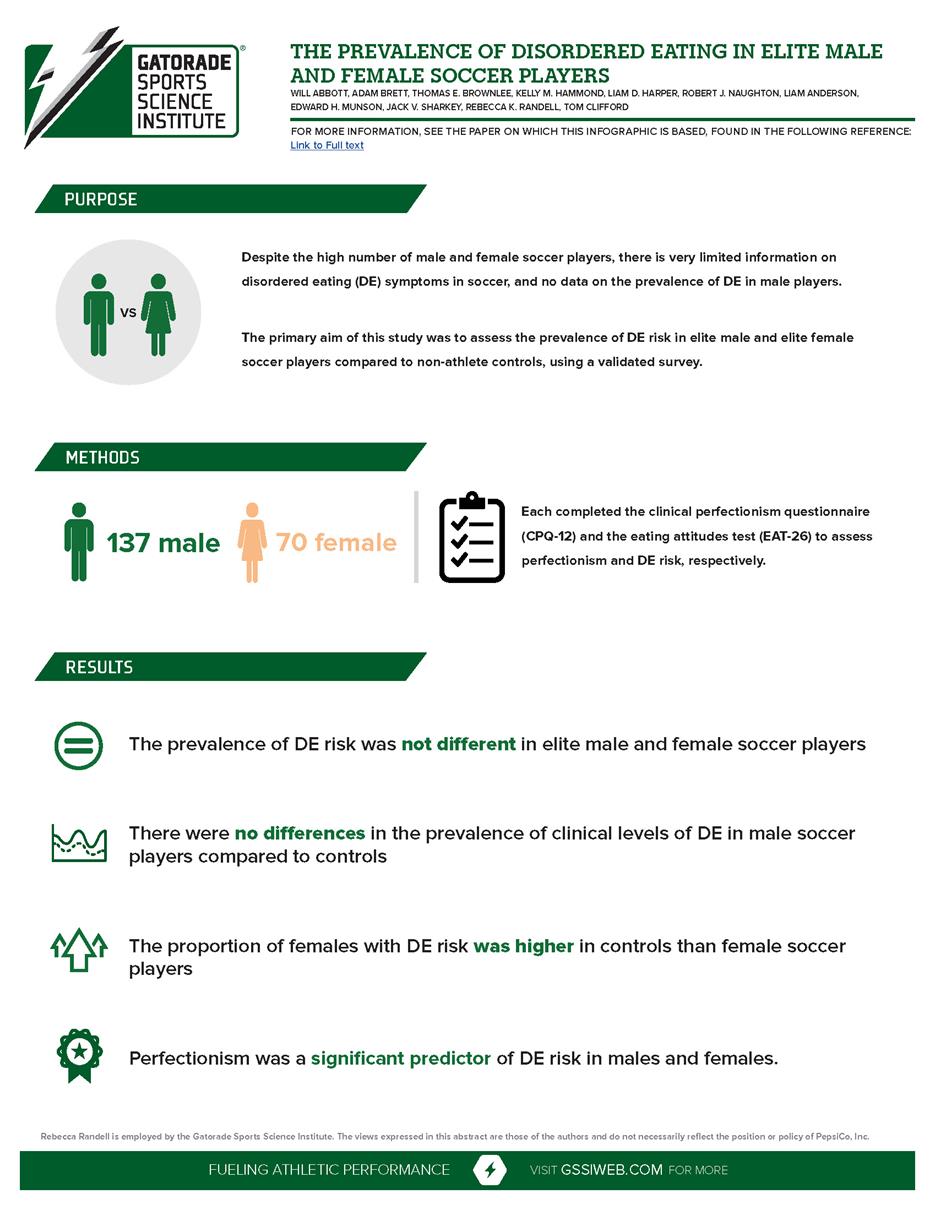Abstract
Purpose
To examine the prevalence of disordered eating (DE) in elite male and female soccer players and the influence of perfectionism.
Methods
Using a cross-sectional design, elite male (n = 137) and female (n = 70) soccer players and non-athlete controls (n = 179) completed the clinical perfectionism questionnaire (CPQ-12) and the eating attitudes test (EAT-26) to assess perfectionism and DE risk, respectively.
Results
Male soccer players had higher EAT-26 scores than controls (10.4 ± 9.9 vs. 6.8 ± 6.7; P = 0.001), but there were no differences in the prevalence of clinical levels of DE (EAT-26 score ≥ 20) (15 vs. 5%, respectively; X2 = 0.079) The proportion of females with DE risk was higher in controls [EAT-26: 13.9 ± 11.6 (25% of population)] than female players [EAT-26: 10.0 ± 9.0% (11% of population)] (X2 = 0.001). With linear regression, perfectionism explained 20% of the variation in DE risk in males (P = 0.001); in females, athletic status (player vs. control) and perfectionism were significant predictors of DE risk, explaining 21% of the variation (P = 0.001). Male reserve team players had higher EAT-26 (+ 3.5) and perfectionism (+ 2.7) scores than first-team players (P < 0.05). There were no differences in the prevalence of DE risk between the male and female soccer players (X2 = 0.595).
Conclusions
The prevalence of DE risk was not different in elite male and female soccer players; in fact, the prevalence was greatest in non-athlete female controls. Perfectionism is a significant predictor of DE risk in males and females.

To download this infographic - please click here
Eat Weight Disord (2020) doi: 10.1007/s40519-020-00872-0